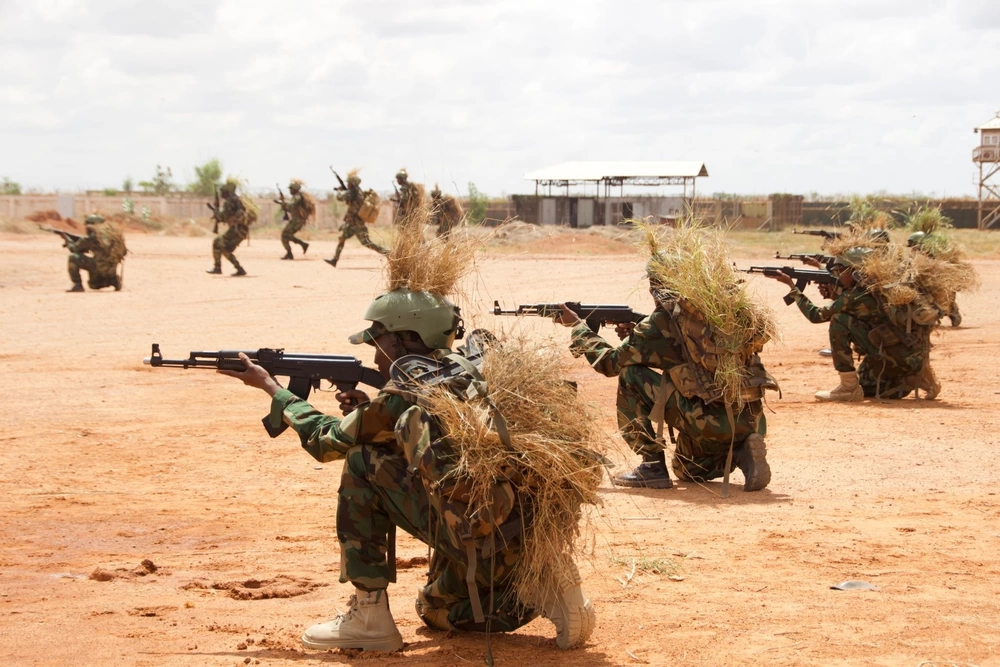The US-backed Somali military has “melted” in the face of an al-Shabaab offensive in southern and central Somalia despite receiving billions of dollars in international support over the years, AFP has reported.
Citing data from the think tank Sahan Research, the report said that in its counteroffensive this year, al-Shabaab has regained 90% of the territory it lost in recent years. The Mogadishu-based government had success in an offensive in 2022 and 2023 because it relied on local clan militias to do much of the fighting, but President Hassan Sheikh Mohamud has since lost the support of some of those groups.
“The mobilisation went well when the president came from Mogadishu to start the first phase of the offensive (in 2022). Everybody was heavily involved in the fighting… assisting the national army,” Mohamed Hassan, a local militia member in Somalia’s central Hiraan region, told AFP.
“It’s no longer the same because the leadership are no longer involved and there seems to be disorganisation in how the community militias are mobilised,” Hassan added. Rashid Abdi of Sahan Research said that President Mohamud was “extremely inept at working with the clans.”

One reason why Mohamud has lost support of many clans is due to his push to hold Somalia’s first “one man, one vote” election, which would be a break from Somalia’s clan system, under which clan elders and delegates choose lawmakers. A Western diplomat speaking to AFP warned that an attempt at holding an election with universal suffrage would lead to the bombing of polling stations, even in Mogadishu.
Mohamud’s push toward universal suffrage, attempts to expand presidential powers, and his changes to Somalia’s constitution have led to two regions, the southern Jubaland state and Puntland in the northeast, quitting the federal system. On top of its war with al-Shabaab, the US-backed government has also been clashing with Jubaland forces. A gun battle this week between the two sides near the Somalia-Kenya border left 10 people dead.
Mohamud’s critics say he has been too focused on political issues rather than the military side of things, leading to the losses to al-Shabaab. The US has maintained its military support of Mohamud’s government and has continued to launch airstrikes against al-Shabaab, but the Western diplomat speaking to AFP said Mogadishu’s international backers are frustrated.
The diplomat pointed to the fact that after the African Union’s military mission in Somalia ended last year, a new one, known as AUSSOM, had to be created because the Somali military wasn’t ready to take it over. “There’s a huge amount of donor fatigue. People are asking: ‘What have we bought for the last 10 years?’ Seeing the army run away and having to create AUSSOM was hard for people,” the diplomat said.
The report said that donors, especially the US, were reluctant to continue funding the African Union mission. According to AFP, the US and the EU have poured over $7 billion in military-related spending into Somalia since 2007, mainly through African Union missions. The special US-backed military unit within the Somali army, known as the Danab, has also been struggling against al-Shabaab. Abdi said that the Danab was good at killing militants but not at holding territory.
The US has been bombing Somalia at a record pace this year, though many of the airstrikes have targeted the small ISIS affiliate, an offshoot of al-Shabaab, in Puntland, where the US is backing local forces. The most recent US airstrikes against al-Shabaab took place from June 27 to June 30 in support of a major battle that the government claimed killed 50 al-Shabaab militants. US Africa Command told Antiwar.com on July 15 that it has carried out at least 51 airstrikes in Somalia so far this year.
Reports have suggested that the US has at least considered pulling its support for the Somali government and exiting the conflict with al-Shabaab. The New York Times reported on April 10 that State Department officials suggested closing down the US embassy in Mogadishu and evacuating most US personnel due to the threat of the al-Shabaab offensive. But other officials, including Sebastian Gorka, the top counterterrorism official on the National Security Council, called for the US to escalate in Somalia and double down on its policy of propping up the government, and they appear to have won the internal debate.


